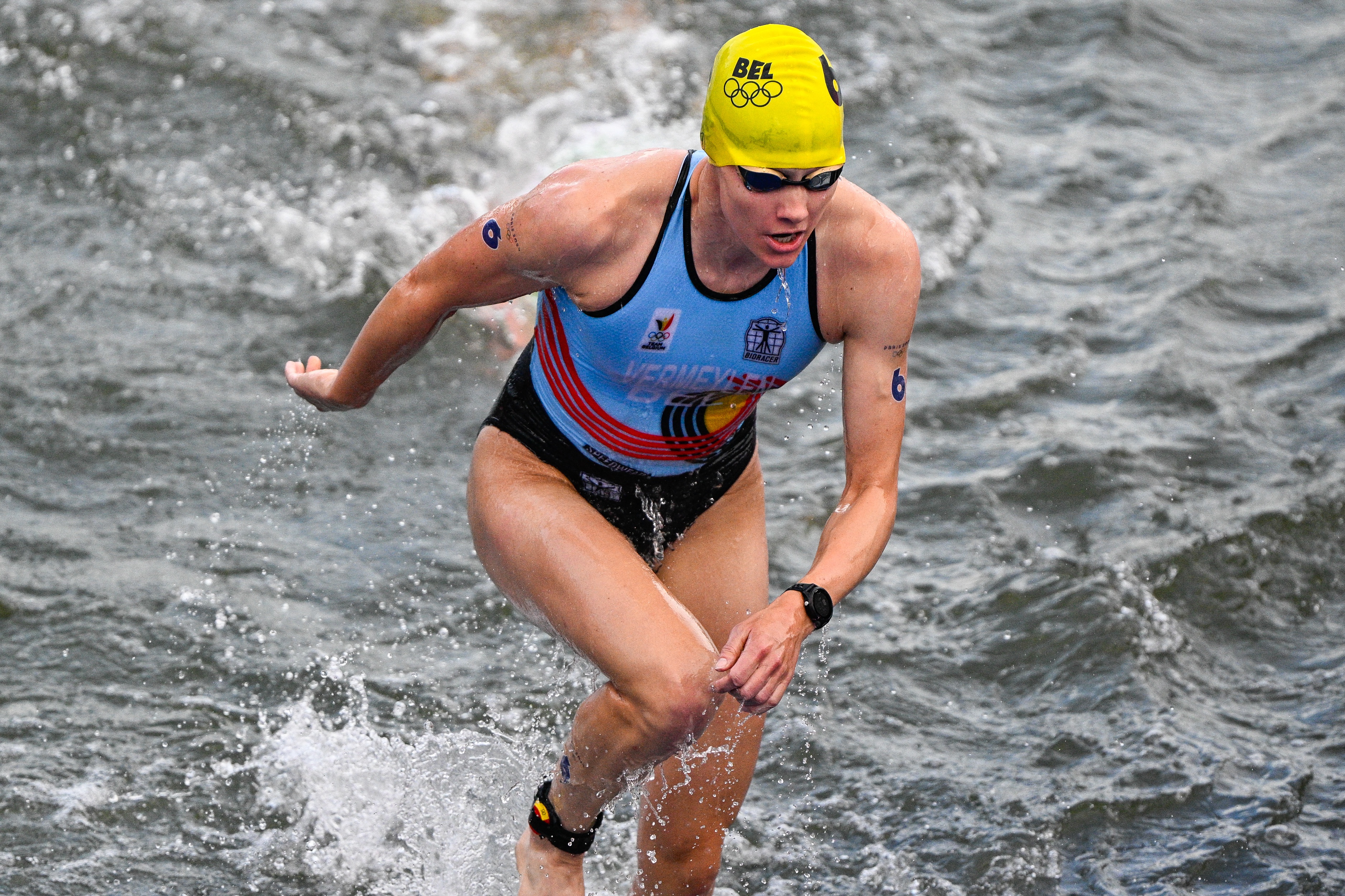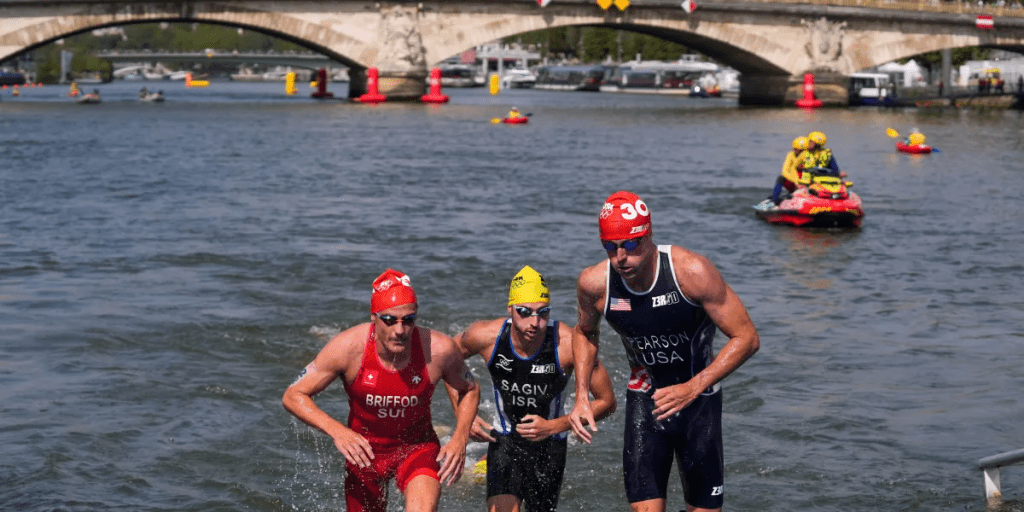The 2024 Paris Olympics promised to be a captivating showcase of athletic prowess, but for the triathletes competing in the River Seine, the games have taken on an unexpected and unpleasant twist. As the world watched in awe, these elite athletes found themselves grappling with fears of waterborne diseases and the sheer might of the river’s formidable currents, casting a shadow over what should have been a triumphant moment.

The Seine River, once so polluted that swimming was banned for a century, has now become the stage for Olympic athletic feats. However, the water quality concerns that have plagued the river for decades have resurfaced, leaving athletes and spectators alike wondering about the potential health risks.
Team USA triathlete Taylor Spivey, who competed in the women’s individual triathlon, expressed her apprehensions after swallowing “a ton of water” during the event. “I’ve taken a lot of probiotics over the past month. So we’ll see how it goes,” she said, alluding to the potential for gastrointestinal issues.
Spivey’s teammate, Seth Rider, echoed similar sentiments, acknowledging the likelihood of dealing with E. coli contamination. “Hopefully I can handle some E. coli. Because I swallowed so much water out there. Probably everyone did,” he stated, highlighting the widespread concern among the athletes.
While some athletes expressed apprehension, others, like Belgian triathlete Jolien Vermeylen, were more cynical about the water quality. Vermeylen humorously recounted her unsuccessful attempt to avoid swallowing the Seine’s murky waters, joking, “I swallowed quite a bit of water, so we’ll quickly find out if I get sick or not. It doesn’t taste like cola or Sprite, of course.”
Vermeylen’s teammate, Marten Van Riel, also criticized the poor water quality, saying, “Let’s hope it was clean, but while swimming we couldn’t see our hands. It was that murky. I also have a bit of stomach pain from the water I swallowed.”

In contrast to the concerns raised by the American and Belgian athletes, French triathlete Cassandre Beaugrand, who won gold in the women’s event, seemed unperturbed by the water quality. Her confidence aligns with the significant efforts being made to ensure the Seine’s safety for swimmers, including a $1.5 billion investment to clean up the river ahead of the Olympics.
Beyond the water quality issues, the triathletes also grappled with the formidable currents of the Seine River. Spivey described the current as “insane” and “shocking,” even suggesting that officials might stop the race or pull athletes out after one lap.
Vermeylen and Van Riel echoed these sentiments, with Vermeylen remarking, “It can be a maximum of 1.0 m/sec, and I suspect it was around 0.9. At one point, we swam past a boat and barely made any progress. So yes, that was miraculously good too.”

Despite the challenging conditions, the triathletes excelled in their events. Beaugrand claimed gold in the women’s race, with Switzerland’s Julie Derron securing silver and Britain’s Beth Potter taking bronze. In the men’s race, Alex Yee of Britain won gold, Hayden Wilde of New Zealand earned silver, and France’s Léo Bergère won bronze.
The 2024 Paris Olympics have proven to be a true test of resilience for the triathlon competitors. From concerns about waterborne diseases to the daunting currents of the Seine River, these athletes have faced unprecedented challenges that have pushed their physical and mental fortitude to the limits. As the world watched in awe, the triathletes ultimately triumphed, showcasing their unwavering determination and the true spirit of the Olympic Games.


